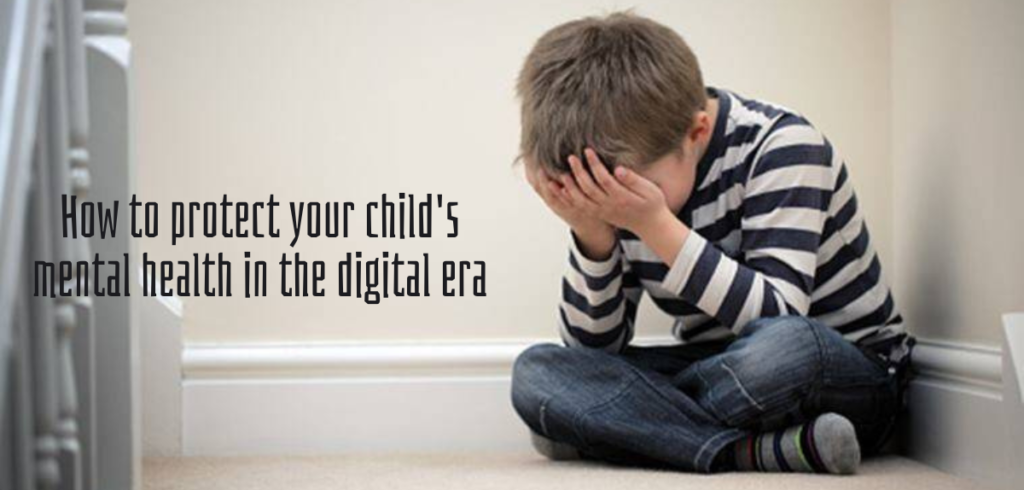Children have benefited greatly from the digital age, which has given them access to a multitude of entertainment options, education and knowledge, and chances to connect with friends and family. On the other hand, it’s critical to recognize the problems that children’s mental health may face in the digital age, including cyberbullying, exposure to offensive material, and excessive screen time.
Here are some tips on how to protect your child’s mental health in the digital era:
Talk to your child about internet safety
It’s critical to have frank discussions with your youngster about the advantages and disadvantages of accessing the internet. Tell them what cyberbullying is and how to handle it should they come across it. Discuss with them the significance of exercising caution when it comes to the websites they visit and the people they communicate with online.
Set screen time limits
It’s critical to establish daily screen time limitations for your children. According to the American Academy of Pediatrics, kids under the age of two shouldn’t use screens at all, and kids between the ages of two and five shouldn’t use them for longer than an hour per day. When it comes to screen time, older kids and teenagers should limit their usage to no more than two hours a day, not including homework time.
Monitor your child’s online activity
While keeping an eye on your kids’ internet activities is crucial, you should also respect their privacy. Parental control software allows you to monitor your child’s social media accounts and browsing history in addition to blocking specific websites and apps. It’s crucial to explain to your kids why you are keeping an eye on their internet behavior, though.
Be a role model
Youngsters pick up knowledge from the elders in their lives. Your child is likely to follow your lead if you are often checking your computer or phone. Strive to set an example for good digital behavior by going offline and taking screen breaks.
Encourage your child to engage in other activities
It’s critical to support your youngster in doing things other than using devices. This can be going outside, engaging in physical activity, reading, or socializing with loved ones. Diverse hobbies and pursuits can contribute to your child’s well-being and lower their chances of mental health issues stemming from excessive screen usage.
Here are some specific things you can do to help protect your child’s mental health on different social media platforms:
Discuss with your kids the risks associated with photo altering and unattainable body image ideals. Urge them to follow accounts that uplift one’s own self-worth and body image.
TikTok
Keep an eye on your child’s viewing history to ensure they aren’t seeing any offensive, violent, or sexual films.
Snapchat
Discuss with your child the risks associated with excessive sharing of personal information and sexting. Urge them to safeguard their account by using Snapchat’s privacy settings.
Have a conversation with your child about the value of choosing their online connections carefully. Urge them to report or block any anyone who is bothering or abusing them.
Discuss with your kids the risks associated with online hate speech and cyberbullying. Urge them to report any offensive stuff they come across on Twitter by using the reporting options.
In the digital age, it’s critical to keep in mind that you are not alone in defending your child’s mental health. You can get assistance from a variety of sources, including books, internet, and mental health specialists. Your youngster may learn responsible and safe internet usage with your help.

